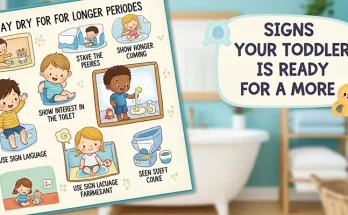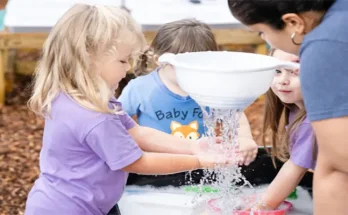We have focused a whole lot on bullying here lately and then for the great reason we now have poured lots of attention around the child who’s been bullied, but I want us to spend time dealing with the child who the bullying. We must keep in mind that this is still a youngster that needs assistance.
I know that no-one enjoys managing a child bully, and it’s really hard to love such an unlikeable individual who exhibits negative, pesky behaviors towards others. Children try to avoid him/her and teachers/administrators aren’t so pleasant toward this child either, but we should have compassion because of this child too.
Believe it or not, children do not come into this world as bullies. Many of them have learned this behavior. Have you ever stopped for just a moment to take into account this? Much of what these children are becoming has been based on their environmental experiences and shaped from home-life and/or other unfortunate variables that they have seen, heard, and perhaps was required to take care of.
Many times the bully is sad and wants to change. He/she doesn’t like him/herself either and wants because of this image, however, they continue in their madness. You’ve heard the misery loves company.
Realizing this could be true for some, perhaps don’t assume all, wise investment to consider a closer inspection at this child. Can we use the “5 W’s and H” strategy in an attempt to dissect, study, and learn about this kind of child? Let’s give it a try. If so, perhaps we can intervene and redirect this child in a happier being.
As adults, we could help instill feelings of remorse, care and concern for others into the little one bully.
Tips for a child Bully
Attend counseling sessions that permit you to talk using your adverse family life issues/struggles Role enjoy your counselor how to make friends and say positively what to your peers Talk to a grownup about your anger problems Use relaxation techniques and exercises when you’re feeling angry about life’s issues Ask for help if you feel angry to Ask the teacher for a time-out when you need by sitting and take into consideration how you behave Write your thoughts in the journal Ask yourself how you’d probably feel if someone was bullying you or somebody that you like Tell yourself that you are a good person Work hard with an try to say something good about someone every day Ask your folks to attend PTO and Open House with you
Tips for your Educators
Offer the fogeys from the bully assist in social services (Medical, Food, Clothing, Utilities (when the child’s primary needs are met, he/she feels wholesome) Get to the trenches (that is where our youngsters are) There needs to be consistent supervision – in hallways, under stairwells, in low populated areas and place that bullies can easily hide and disguise themselves Have bully use “I” statement when acknowledging his/her inappropriate behaviors with other people. Hopefully, this will develop ownership of behaviors Praise the bully often when he/she is caught doing something good Find out the talent(s) from the bully.
Have a bully inform you what he/she likes. Use his/her talent(s) to formulate his/her strengths in other locations. Use self-fulfilling prophecy technique – Tell the bully positive reasons for him/herself and observe them become that person Teach bully positive leadership skills when he/she is ready Chart every time the bully genuinely says or does something nice to someone Rewards should move from extrinsic to intrinsic Bully shield/proof the college Foster climate of respect one to another Encourage staff to go to children about differences and acceptance of differences using dialogue and friendly discourse (use worksheet in the rear of No Tildes on Tuesday, along with other great works) Teach and model acceptance and genuine appreciation of others Teach and model a sense of pride for work, dress code, manners Implement school-wide, classroom, and individual intervention programs Implement school-wide rules and sanctions.
Build and enforce an environment that’s intolerant of bullying behaviors Implement culturally responsive pedagogy Choose a text that will depict all heritages/cultures and ethnicities inside the curriculum Establish positive rapport with bully Utilize self-esteem boosters with a bully.
Some might think the bully does have high self-esteem, but anyone who hurts others needs to be lower in esteem. Those seem to have high self-esteem display false-positive esteem Ensure that your teachers and staff don’t exhibit bullying behaviors – some do
Tips for Parents – You have a huge responsibility
Help your kids tune to their emotions from a very early age. This will mold them from mere beginnings From in the beginning in everyday life, teach your kids to like and appreciate the self-first Model feeling of caring, sharing, and politeness. This will instill a feeling of remorsefulness within your kids Be careful not to poke fun at or judge people and your children are not going to make fun of or judge people (sexual orientation, physical aspect) Teach children how to hold a door, or quit a chair with an elder, or perhaps a lady which has a small child. Teach them to greet people by saying “Good Morning,” or when they enter a space full of people. Have them write thanks cards after someone has given them a great gift. Teach children to look at responsibility for actions along with their personal belongings.
Teach children that it is okay being competitive without having to be a sore loser or possibly a bully Model and help children express their emotions of joy anger, sadness, and happiness, so they are considerate of how their words and behaviors may hurt others Teach children of their early years how to say “sorry” whenever they offend or hurt others Be careful not to bully your child No put-downs No ignoring No intimidating Take time away from your duties and work and spent quality time with your kids, particularly if your kid’s desire to talk or seems to be withdrawn Ask your youngster about his/her day at school. Ask if there’s whatever you have to know Go to your child’s school and remain active in PTO, Open House, Room Mother/Dad, and also other school activities. Check-in with all the teacher periodically to view how everything is going





